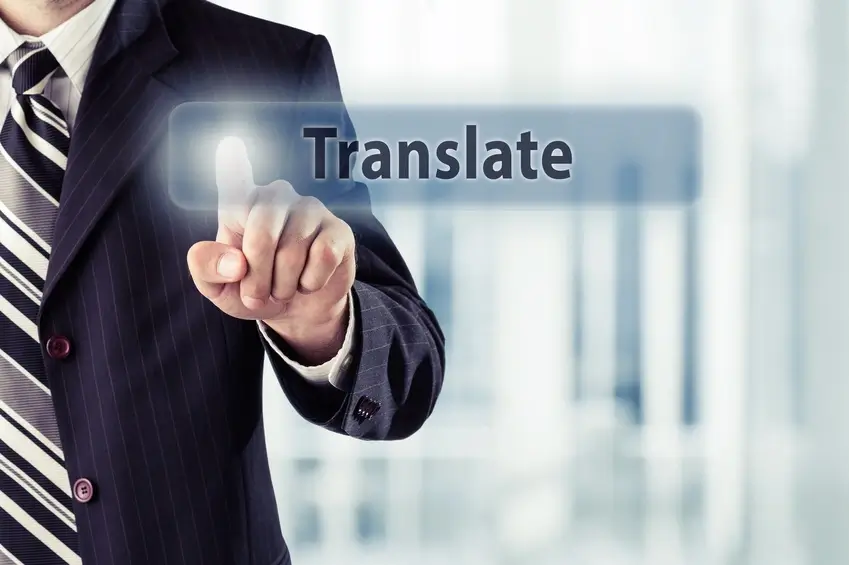
We are here for you!
Every day we help small and large companies and organizations to realize their international potential. We will gladly advise you. Are you interested? Request a non-binding offer now!
Waterproof legal translations
There is barely any jargon that is more difficult for laypeople to comprehend than legalese. Over the years, German legalese and the language of bureaucrats have given birth to strange terms, indeed. While year-end wing figures (angels), directional indicators (turn signals), and space-spanning large greens (trees) may be smiled at today, the fun can quickly fade when, for example, parole requirements are not understood by those involved. Not only the international communication of courts, government authorities and law firms, but also companies and their legal departments make it necessary to produce watertight legal translations in the relevant national languages. Our professional legal translators are properly trained, sworn and authorized to translate your legal documents – completely without fine print.

Your questions – Our answers
If you have any further questions, please do not hesitate to contact us!
What is a certified translation?
Certified translations are translations that are done by sworn or authorized translators. They’re usually needed by government agencies like the registry office or the naturalization office.
They differ from normal translations in the following ways:
- Certification note confirming the completeness and accuracy of the translation
- Stamp and signature of the translator
- Fixed connection by means of an eyelet, stapling, or sealing with the source text or a copy thereof
Who issues state-approved certified translations?
Certified translations are made by translators who have been sworn in or authorized by a court in Germany. According to Section 142 (3) sentence 2 ZPO (Code of Civil Procedure) the authorization relates to the certification that a translation is correct and complete.
Freelance translators who are not sworn may not certify translations with their stamp and cannot verify the accuracy and completeness according to Section 142 (3) sentence 2 ZPO (Code of Civil Procedure) .
Certified translations are generally accepted by all authorities in Germany in accordance with Section 189 of the German Code of Criminal Procedure (GVG).
Are my translations from abroad recognized in Germany?
In theory, translations made by a translator sworn-in abroad should be recognized in Germany if they have appropriately overauthentication or legalization.
In practice, however, it turns out that many German authorities do not accept certified translations from abroad. It is often pointed out that certified translations of certificates and documents must be produced by a translator who is sworn or authorized in Germany for the respective language.
Unfortunately, this often means that translations have to be made and paid for twice if they have already been done abroad.
Are my translations made in Germany recognized abroad?
Certified translations issued in Germany for use abroad require preliminary authentication and overauthentication by the Higher Regional Court and often need to be legalized by foreign consulates and embassies before they are valid abroad. Some consulates and embassies only accept their own translators accredited by the respective consulate or embassy.
If you plan to use translations abroad, we advise to contact the receiving agency beforehand and clarify the requirements for recognition of the translation from Germany there.
Some countries accept certified translations from Germany without further ado. Please check with the relevant authority whether they accept translations certified in Germany before you have preliminary or additional certification of your certificates carried out. This can often save you a lot of time and money.
What is an apostille/legalization and how do you obtain one?
Eine Apostille/Legalisation ist eine zusätzliche Echtheitsbestätigung einer ausländischen Urkunde. Dabei bestätigt eine Apostille/Legalisation die Echtheit der Unterschrift und ggf. des Siegels des Unterzeichners sowie dessen Befugnis zur Ausstellung der Urkunde. The Hague Convention Abolishing the Requirement of Legalization for Foreign Public Documents (Apostille Convention) is in force between Germany and many countries. However, Germany has objected to the accession of some countries. You can find a detailed list at the Auswärtiges Amt and in our article on apostilles, legalization, and certifications.
The authorities of the country in which the document was issued are responsible for issuing it, i.e. German authorities for German documents and, for example, Ukrainian authorities for Ukrainian documents.
Further information on apostilles and obtaining documents from abroad can be obtained from the relevant embassies and consulates. We have already prepared this for many languages – select your language from the overview of our working languages! For an apostille relating to German documents, please contact the relevant authority directly. For documents from registry offices, this is usually the respective regional council or district government.
Do you have any further questions? Please feel free to contact us!
By phone on +49 (0) 711 995 222 20
or by email to mail@resartus.de.

- The highest quality standards
- Work according to DIN EN ISO 17100
- Native speaker principle
- Security and data protection
- Customer-oriented project management
OUR SECTORS
As a professional translation agency, we are the partner you can count on!
OUR SERVICES
As your partner, we offer to you, among other things:
- General terms and conditions
- Resolutions
- Privacy policies
- Prenups
- Appraisals
- Warrants
- Patents
- Statutes
- Divorce decrees
- Criminal reports
- Last wills and testaments
- Certificates
- Rulings
- Contracts
- Powers of attorney
